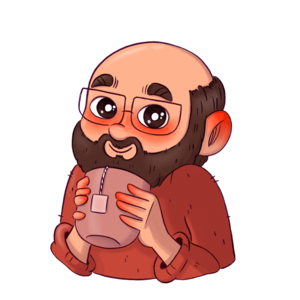Once there was a country that had no dealings with its neighbors, and it was ruled by the High Council. These were ten old men who called themselves wise, and in the name of their God they ruled over the people.
The High Council had established strict rules for all aspects of life, which all inhabitants of the land had to obey unconditionally. All men were considered servants of the God, and as long as they obeyed all the rules, they could go about their day's work as they pleased.
However, all women among the people were considered little more than the subordinates of the men. They were not allowed to learn anything or do anything without the permission of the men or the High Council. Women had to obey, and if they did not, they had to fear drastic punishment.
It was even worse for the people who identified as neither man nor woman, and for those who lived in relationships that the High Council saw as against the will of their God. These people had to fear violence and death at all times and had to hide to escape danger.
The few who broke the rules were imprisoned and never seen again, and often they were executed.
For many years the people submitted to their fate, and not a few men said it was unchangeable, because it was the will of their God, carried out by the High Council.
But after a time, the controls on the rules became stricter and stricter, and more and more women were arrested, punished, and killed with increasing frequency for ever smaller offenses against the supposedly divine rules.
Mothers wept for their daughters, sisters for each other, despair grew, but also anger at being treated unequally and oppressed grew with each passing day. All those affected by the oppression began to exchange ideas in silence, and some among them began to question the regulations, the High Council and the entire hierarchy in the country.
Women who had lost mothers, sisters and daughters began to defy the rules. The courage to do so was fed by grief over their losses, and the anger over it made them put their own safety second.
The High Council saw this with concern, but also with anger at the insolence of what they saw as inferior women. They sent out their guards to arrest and punish the troublemakers.
But more and more women saw that some were resisting, and many of them got the courage to join the protests. More of them took to the streets every day, and even a few of the better-off men began to question the system.
The High Council guard tried to suppress the protests, but the number of women who plucked up the courage to fight the oppression grew with every passing hour. When the guards began to arbitrarily kill protesting women, the point was reached that the situation tipped. Driven by anger and despair at the senseless violence, nearly everyone took to the streets, and their sheer numbers were too much for the High Council guard to handle. One by one they were overwhelmed and disarmed, thrown down and imprisoned. And many of the men were also locked up with them, namely those who said that what the women were doing was wrong, and also those who were hypocritically trying to sneak over to the side of the oppressed in order to betray them.
Many inhabitants of the land, women, men and others, had perished, and regardless of which side they were on, they were mourned, for no one should be the victim of violence.
Now the only way left was to go to the house of the High Council.
The supposedly wise men of the council had entrenched themselves in their council hall with the remnants of their guard, and even though the situation was serious for them, they still considered themselves superior.
A massive crowd stood outside the gate of the hall, and a select group was sent to speak to the council. Every age group, gender, and sexual orientation was represented among the emissaries, and upon arriving at the gate they called to the old men to come forth.
After a short time, the men of the council came out with an arrogant look and full of confidence to turn the situation in their favor. But when they saw a huge crowd in front of them, some of them lost their courage.
The elder of the council stepped forward and spoke to the emissaries:
"How dare you, inferior women! Your God commands you to obey and return to your homes! The High Council will punish you in the name of your God!"
But the eldest of the emissaries stood before him and spoke:
"I do not obey old men who want to persuade us that a God wants to see us oppressed! I do not obey old men who have us killed because we have a will of our own! And if your God tells you that not all people are equal and that we women are inferior, then your God is not ours! We do not serve a God who demands hatred and inequality! The rule of the High Council is over now! This you can accept, or you can leave this land forever!"
The council elder wanted to appeal, but the other old ones began to realize that they and their guards had no chance against the numbers and determination of the gathered women and other citizens. The High Council had lost its power!
The last members of the Guard laid down their arms, and the members of the High Council were stripped of their insignia. Then they were free to go wherever they wanted. No violence was done to them, because then the citizens of the country would have been as corrupted as the former council.
From that day on, all the inhabitants of the country were considered equal, regardless of gender, sexuality or any other characteristic. They chose representatives from all groups to govern the country.
Every year on the day when inequality was overcome, all those who had lost their lives due to oppression, intolerance and religious zeal were remembered. The inhabitants of the country never wanted to forget what had been necessary to achieve peace and equality for all.
The country forged new bonds of friendship with its neighbors, and it prospered in peace, equality and happiness for all its now free inhabitants. Without exception.











Comments (0)
See all